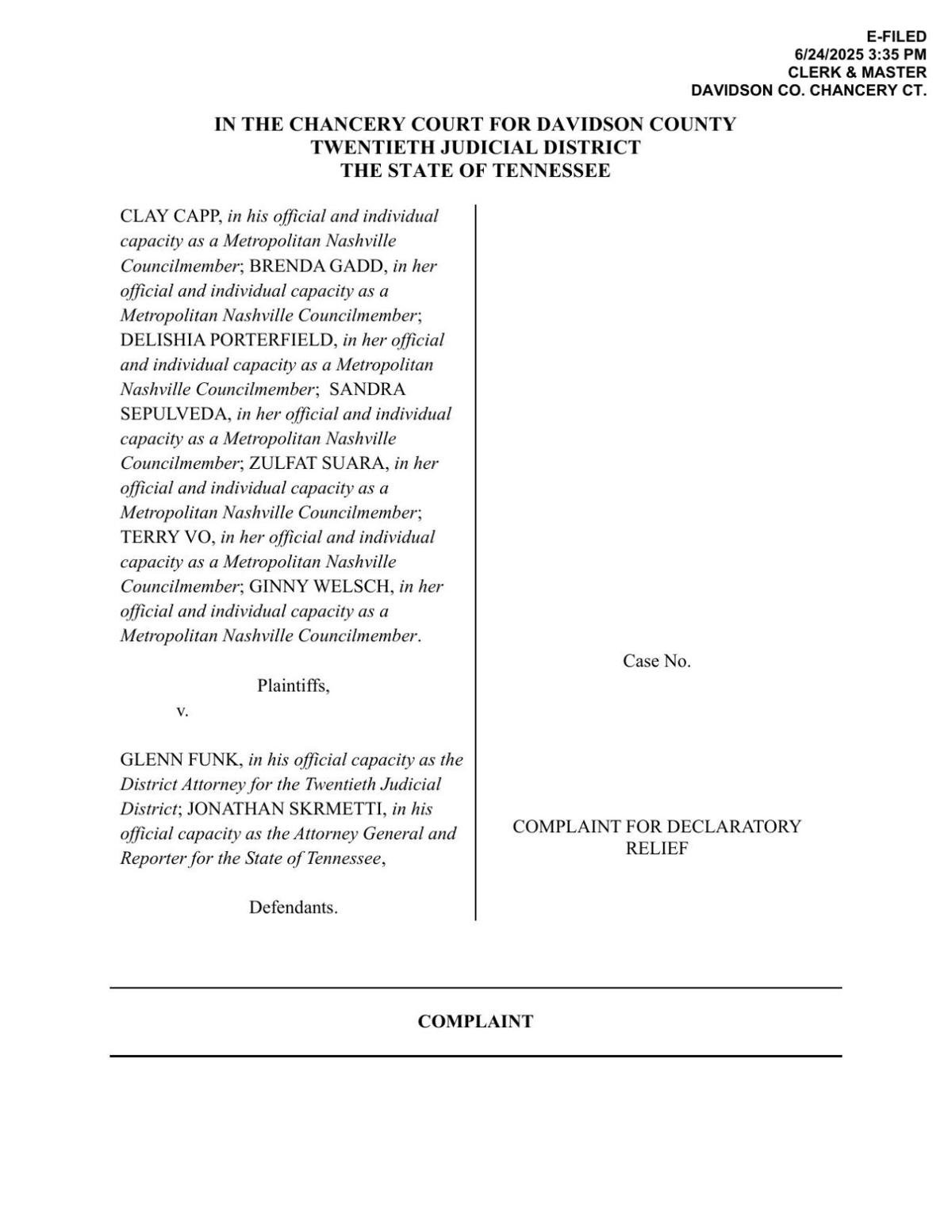Seven Metro councilmembers, represented by the American Civil Liberties Union, are suing the state of Tennessee over a new law under which the state could imprison elected officials who vote for "sanctuary city" policies. The felony penalty, passed during Gov. Bill Lee’s special session in January, raised significant constitutional red flags and is set to go into effect on July 1.
City lawyers weighing constitutional challenge against sanctuary city penalties
For years, the concept of "sanctuary cities," which is broadly defined in Tennessee Code, has frustrated conservatives who call for increased arrests of undocumented immigrants. The phrase became an umbrella term for cities that took measures to protect residents from ICE enforcement during the first Trump administration. In 2018, Tennessee Republicans passed a law prohibiting local entities from adopting “sanctuary city” policies. In the days following Trump’s second inauguration, conservatives again took aim at these jurisdictions with a suite of immigration-related bills, including a provision that established a class-E felony for individual lawmakers who enact, vote for or otherwise support such policies. A few conservative detractors, including Sen. Todd Gardenhire (R-Chattanooga), flagged the bill’s apparent constitutional violations at the time.
Direct criminalization of an individual’s political views violates First Amendment protections, argues ACLU legal director Stella Yarbrough in the 27-page suit on behalf of Metro Councilmembers Clay Capp, Brenda Gadd, Delishia Porterfield, Sandra Sepulveda, Zulfat Suara, Terry Vo and Ginny Welsh. Green Hills Councilmember Jeff Preptit, a former ACLU attorney, joins Yarbrough as a signatory on the complaint. Plaintiffs seek a declaratory judgment from the court ahead of the law’s July 1 implementation.
“This is the first known instance in American history where a state has imposed felony liability on local officials simply for the viewpoint expressed in their votes,” reads the suit, in part. “In criminalizing voting itself, Tennessee has cast a net of criminality over the entire local democratic process and has warped the foundational democratic principle that elected representatives must be free to debate issues without fear of recrimination.”
Vague and broad language defining a “sanctuary policy” makes the law vulnerable to a legal challenge, plaintiffs argue, generating an “impermissible chilling effect” on officials’ free speech. The suit also lays out several “impossible compliance scenarios” in which an official complying with federal law might also be subject to criminal prosecution under state law.
A looming felony charge prompted several Nashville lawmakers to consider private counsel on the matter, according to conversations with the Scene. The city’s legal department, which has successfully sued the state multiple times in recent years, previously considered its own challenge.







